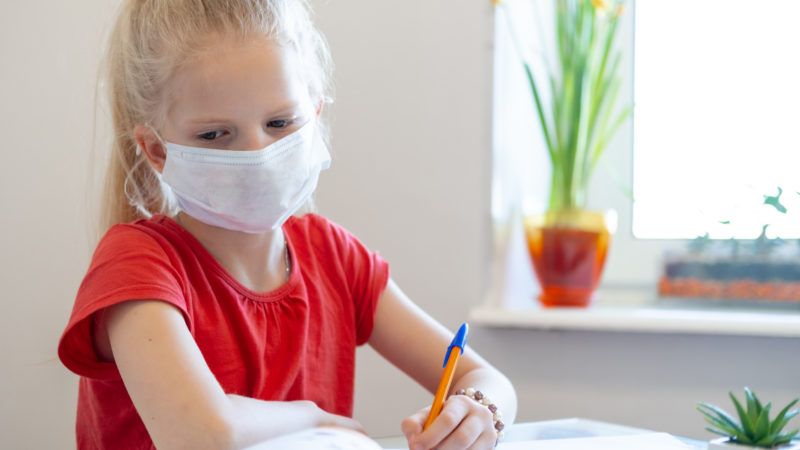Survey: Parents Are Vastly More Satisfied With In-Person Education Than Distance Learning
Low-income kids were most likely to get online-only instruction, according to Pew.

Parents of K-12 students who have returned to school are much more likely to say they are "very satisfied" with their kids' education than those still dealing with the frustrations of Zoom learning, according to a new poll from the Pew Research Center.
The findings are hardly surprising but feature some useful numbers that demonstrate the difficulties of distance learning during COVID-19.
For kids who are back in the classroom, 54 percent of their families said they were "very satisfied" with how the school was navigating the pandemic. Another 36 percent were somewhat satisfied. On the other hand, just 29 percent of parents who have had to make do with at least some online instruction rated themselves as "very satisfied." The "very concerned" numbers were 11 points worse for mixed-learners: 32 percent versus 21 percent for in-person instruction students.
Interestingly, the survey results suggest that the most obnoxious arrangement of all might be a mix of in-person and at-home learning.
"Concerns about children falling behind in school are particularly common among parents of K-12 students who are getting at least some online instruction this fall," wrote the report's authors. "Those whose children are getting a mix of in-person and online instruction are the most concerned."
The survey also points to stark differences in how the wealthy and the economically disadvantaged have weathered school closings: 19 percent of upper-income households have hired tutors to help out, whereas just 7 percent of low-income households have done the same.
Overall, a plurality of families said their kids were getting online-only education, but the class breakdown suggests disparities: 40 percent of upper-income families are settling for Zoom learning, versus 45 percent of middle-income and 53 percent of low-income families.
What is obvious from these findings—and from any number of news reports that feature conversations with actual parents—is that virtual learning has been a stunning failure for many kids. It's obvious to both families and school administrators. It's obvious to Education Secretary Betsy DeVos, who told Reason in a recent interview: "For most kids, they need to be together with other kids. They need to be with their peers, with their teachers."
The one group denying this reality is the teachers unions, who are currently fighting school reopening plans in several major cities. Many unions have maintained that their members should not return for in-person instruction until there is practically zero threat of COVID-19—even though the data from schools that have reopened suggest this can be done safely, with minimal threats to adults and almost no threat to kids.
Teachers unions often assert that they don't just represent educators: They represent the interests of families as well, they say. But in this situation, at least, that just isn't true. Parents aren't satisfied with the status quo—just ask them.


Show Comments (58)